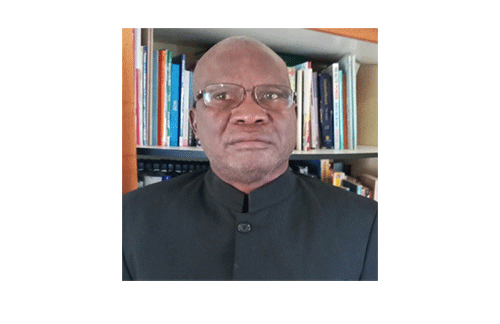The state of phobia between lawmakers and academicians has been simmering for many centuries, and yet no solution is in sight. In ancient Greece, Socrates was condemned to death by drinking hemlock because of his questions about life and knowledge and other issues, which affected humankind.
During the Renaissance, many free-thinking scholars had to sacrifice their lives by being burnt at stake. In cases where their lives were spared, they would remain rejected and their ideas scorned by the authorities of their times. Things did not change much with the passage of time, until the results of their work were seen and put to use in many practical ways.
After Europe has illegally and greedily shared the African continent among herself and colonised her, the emerging intelligentsia was again targeted, arrested and in most cases killed, despite the fact that Africans looked up to them as civilized and educated let alone christened people. In most cases, the colonizing power did not differentiate between African intellectuals and political activities.
According to the colonizers Africans were simply objects which deserved no mercy and dignity, as were seen as troublemakers bent on disturbing their peaceful existence in the colonies. Indeed the colonizers had a very nice time in Africa during that time and many of them are still nostalgic about that. Their peace was unexpectedly disrupted when Africans started claiming what was rightly theirs- the right for self-determination and access to their resources. The colonizers felt the Africans had touched their lifeline and tried to resist but everything is history.
When the new African political masters took over the reins of new governments, they equally behaved like their former colonizers in many aspects. The phobia for the intelligentsia has increased exponentially and from the dawn of Uhuru, the situation has not been any better. Almost in every African country like in many countries elsewhere, the academicians are targeted for merely airing their voices emanating from research papers and other sources of information they might have unearthed. Chinua Achebe in his book, ‘A man of the people’, epitomizes a certain Chief Nanga, a Minister in parliament who would publicly tell his listeners that he did not like black educated Nigerians and preferred whites. In extreme cases like in Uganda during the seventies, the vice chancellor of Makerere, a prestigious university, simply disappeared forever. In Malawi, almost at the same time, many master’s holders and students alike vanished into thin air. This demonstrates one thing and that is –even in countries, which are led by intellectuals, the scholars are not waterproof and immune to persecution. This scenario raises eyebrows and fears when the Namibian head of state tells the conference of the ruling party that Namibian scholars hate the power that be. This was of course not said in good faith as there has been an academic victim so far who fled this country on the pretext that his life was no longer safe in the Land of the Brave.
Maybe one could see it from another angle that it might be the ruling party, which does not like scholars and hate them for reasons known by the leadership. What is ironic is that there have been repeated calls to encourage all Africans in the diaspora to come back to develop their continent. In other quarters of the continent, leaders always call on academicians to assist in developing their countries, but when constructive and rational suggestions are put before the leaders, the reaction is always otherwise. But the reality is that there can be no tangible development without input from academicians all over the world. Take the issue of hunting for the vaccines of HIV, Ebola and the current Covid-19 epidemic, which had an immense impact on the lives of the people worldwide. Countries which had confidence in their scientists put them to work and at least came up with something which saved many lives. On the African continent where academicians are always ridiculed, very little is being done even to come nearer to the finding of the medications of these epidemics.
Whatever political reasons, most of these countries have placed their confidence in their intellectuals for solutions to some of the impending cases which affect their people. In most cases, policies and ideas brought to their parliaments emanate from research work conducted by their academicians. The decisions arrived at in their parliaments affect both leaders and their citizens in developing countries. One may argue that our own academicians are also complacent with the status core in our countries. Maybe so, because African academicians are humane and may unnecessarily be critical about the political situations in their countries, without coming out with constructive solutions emanating from lack of information on the ground.
In some quarters, African leaders are sceptical about their academicians with the illusion that they are being used by the colonial powers to unseat them or assist in the advocacy for regime change. But whatever the case might be, the ‘hut in which the first leaders ran into after independence to warm themselves, while the masses were told to wait out,’ should now take another group of people. Finally, the political elite and academicians are members of one country one family and will have to tolerate one another and work together for the good of their people.


